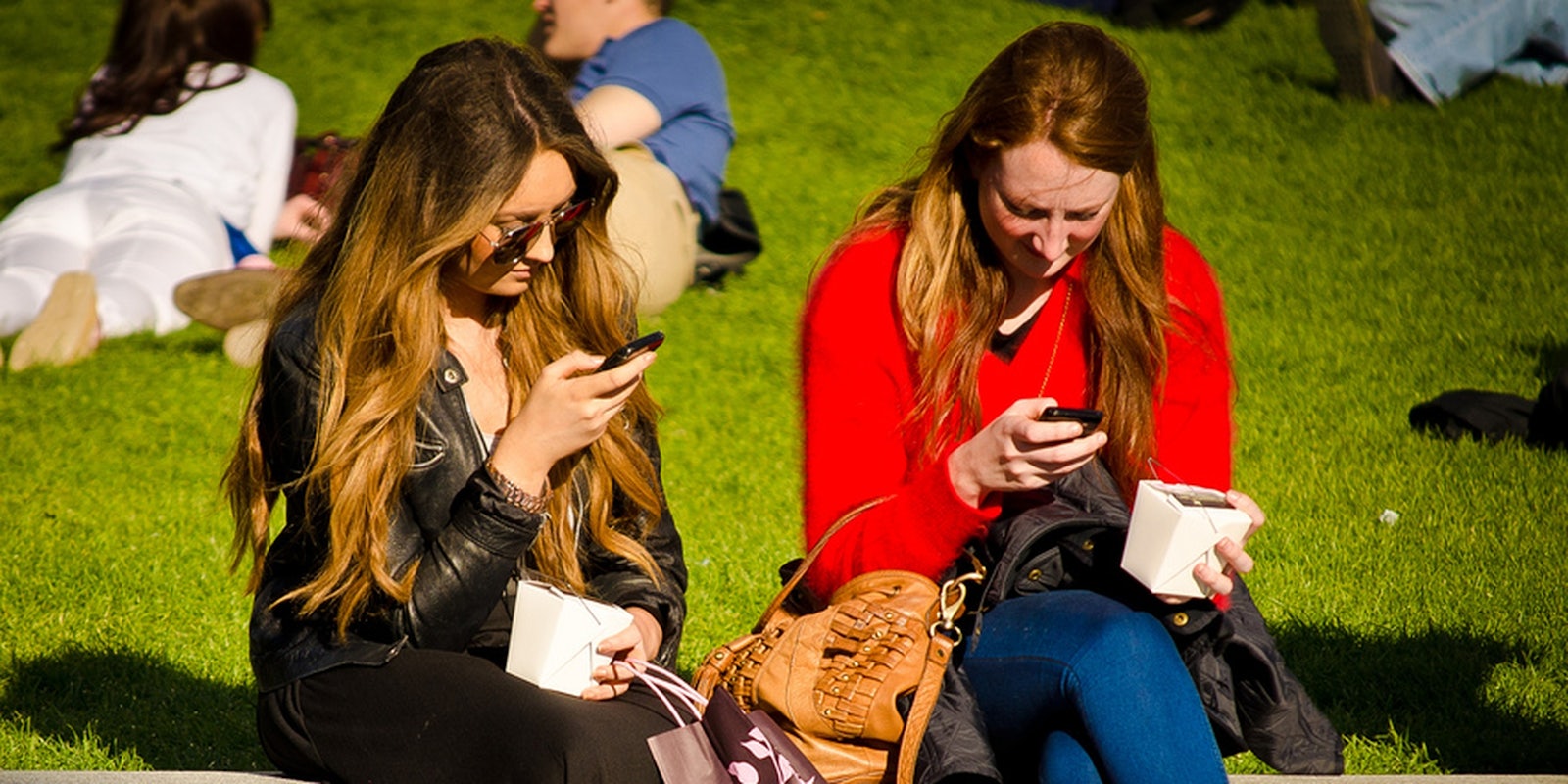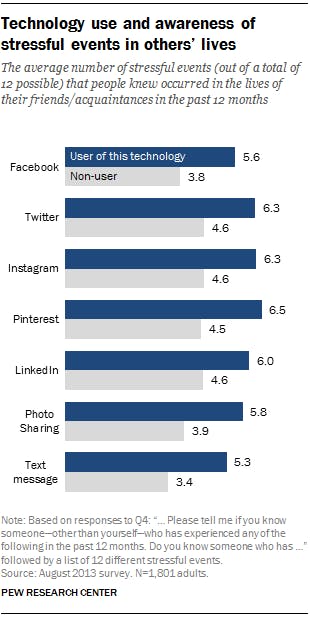Good news for all of you social media addicts: apparently, using services like Facebook, Twitter, and Snapchat doesn’t actually increase your stress levels.
As with any relatively new technology, social media has stoked fears that its use is making people more stressed out. It’s understandable to think that being inundated with hundreds of ways to connect with friends and family by staring at a mobile device could increase anxiety.
According to a new Pew Research Center survey, however, regular social media users don’t report higher levels of stress, and women who use Twitter, email, and photo-sharing services on their mobile devices actually report lower levels of stress than women who do not.
There is a caveat to this stress analysis, however. People who use social media to connect with friends and family and are aware of stress in those people’s lives can actually experience greater stress. Pew calls this “the cost of caring”—technology use can heighten our empathy toward others and make us more anxious.
The findings of the Pew report, which surveyed 1,801 adults, also suggest that stress can be contagious.
Because many people use social media to stay up to date about current events and friends’ life experiences, they end up taking on their contacts’ stressful emotions. According to Pew, this is especially prevalent for women, who tend to share more emotional reflections, thoughts, and concerns online than men do.
As Pew explains:
The relationship between stress and social media use is indirect. It is the social uses of digital technologies, and the way they increase awareness of distressing events in others’ lives, that explains how the use of social media can result in users feeling more stress.
The report suggests that these stress effects aren’t technology’s fault. We might find talking to friends over brunch, listening to the radio, or chatting on the phone to be just as stressful. For some people who take on others’ stress, social media is just one more outlet for their empathy. On the plus side, the rest of us can stop worrying that Twitter is turning us into nervous wrecks.
Photo via Garry Knight/Flickr (CC BY-SA 2.0)



